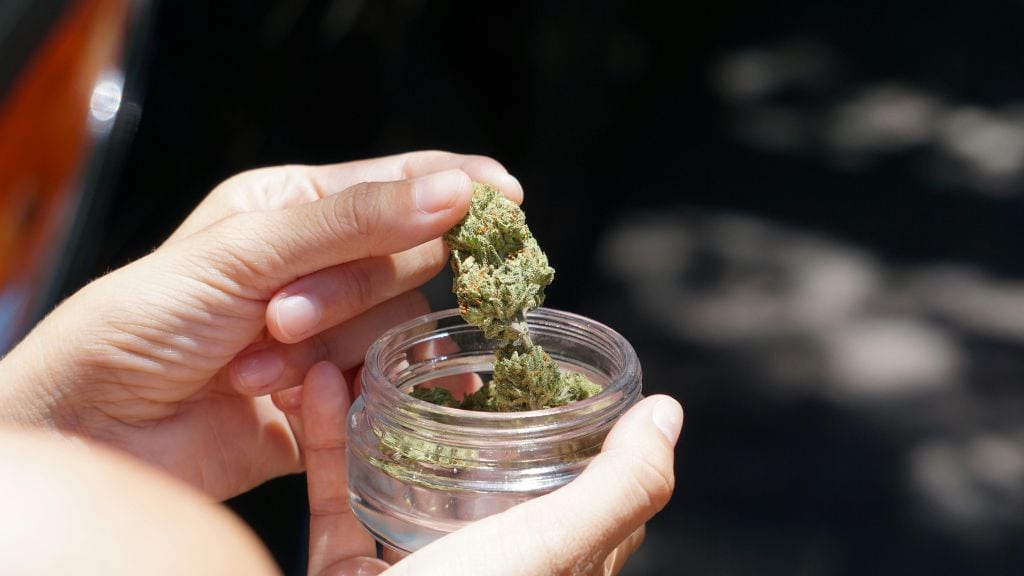Since California legalized recreational marijuana in 2016 through Proposition 64, many people have wondered if there’s still a need for a medical marijuana card.
After all, if adults 21 and over can legally buy cannabis from a dispensary, why bother with the extra step of getting a medical recommendation? The answer isn’t as simple as yes or no.
While recreational use is allowed statewide, medical marijuana cards still hold significant value—and in many cases, they’re still required to access certain products, services, or legal protections.
In this article, we’ll explore the role of medical marijuana cards in California today, when and why dispensaries still require them, and the benefits of maintaining a valid recommendation.
Table of Contents
ToggleRecreational vs. Medical Marijuana in California
California allows adults aged 21 and older to purchase cannabis for recreational use from licensed dispensaries. However, this doesn’t mean medical dispensaries have disappeared.
Many dispensaries continue to operate as medical-only or follow a hybrid model, offering separate services for recreational and medical customers.
Patients with a physician’s recommendation or a state-issued card can access higher potency products, larger purchase and possession limits, tax exemptions on cannabis purchases, and medical-only dispensaries.
So while a medical card isn’t required across the board, Medical Marijuana Cards In California still play a crucial role for those seeking the full range of medical cannabis benefits.
Do All Dispensaries Require a Medical Card?
No, not all dispensaries require a medical marijuana card. In California, licensed recreational dispensaries allow adults 21 and over to buy cannabis products with a valid government-issued ID—no medical card needed. However, the story changes when it comes to:
1. Medical-Only Dispensaries
Some dispensaries choose to serve only medical patients. These facilities are typically more focused on therapeutic cannabis use and may carry products that exceed recreational potency limits. To enter or purchase from these dispensaries, you’ll need a valid physician’s recommendation or a state-issued MMIC (Medical Marijuana Identification Card).
2. Access to High-Potency Products
California law limits THC potency in certain recreational products. For example, edible products for recreational use are capped at 100 mg of THC per package. Medical patients, however, can purchase products with much higher THC content. These high-potency items are only sold to patients who can show valid medical documentation.
3. Age Exceptions
Recreational cannabis is limited to individuals 21 and over. However, patients aged 18 to 20 can legally buy cannabis from a dispensary if they have a valid medical marijuana recommendation. Minors under 18 can also become medical marijuana patients with the consent of a parent or legal guardian.
Why Some Dispensaries Still Require a Medical Card
Dispensaries aren’t just being picky—they’re following state and local laws that distinguish between recreational and medical use. Here’s why many dispensaries still require a medical marijuana card:
Local Regulations
Local governments in California can impose their own rules regarding cannabis sales. In some cities or counties, recreational dispensaries may be banned entirely, while medical ones are allowed. If you’re in a region where only medical sales are permitted, you’ll need a valid card to make a purchase.
Inventory and Product Restrictions
Medical dispensaries often stock products with higher THC concentrations and therapeutic formulations not available in the recreational market. If a dispensary stocks such products, it must verify that buyers are legitimate medical patients—hence the need for a medical card.

Patient-Specific Services
Medical dispensaries typically offer more personalized services. Budtenders may spend more time discussing treatment goals, recommending specific strains, or helping with dosage. This patient-focused model requires verification to ensure resources are reserved for medical users.
Benefits of Having a Medical Marijuana Card in California
Even if you’re eligible to purchase cannabis recreationally, a medical marijuana card still has its perks. Let’s look at the main benefits that encourage people to get and renew Medical Marijuana Cards California.
1. Tax Savings
Medical cannabis patients are exempt from paying certain state and local sales taxes. Depending on where you live, these taxes can add up to 15% or more on each purchase. Over time, a medical card can save regular users a significant amount of money.
2. Higher Purchase and Possession Limits
Recreational users can possess up to 28.5 grams of cannabis flower and 8 grams of concentrate. Medical patients, on the other hand, may possess larger quantities depending on their doctor’s recommendation. They are also permitted to cultivate more than six plants if medically justified.
3. Greater Legal Protection
Having a medical marijuana card offers enhanced legal protection, especially when transporting cannabis or dealing with law enforcement. It provides a clear indication that your cannabis use is for legitimate medical purposes.
4. Access for Younger Adults
As mentioned, individuals under 21 cannot purchase cannabis recreationally. However, with a valid medical marijuana recommendation, patients aged 18–20 can legally access dispensaries. This is especially important for young adults managing conditions like chronic pain, anxiety, or epilepsy.
5. Broader Dispensary Access
Certain dispensaries, especially those located in conservative counties or near hospitals, may only serve medical patients. A valid medical card ensures you won’t be turned away from these locations.
How to Get a Medical Marijuana Card in California
Acquiring a medical marijuana card in California is a straightforward process. You can do it through an in-person doctor’s visit or through telehealth services. Here’s a step-by-step overview:
Consult with a Licensed Physician
A doctor will evaluate your condition and determine if cannabis is a suitable treatment.
Receive a Written Recommendation
This document allows you to purchase cannabis as a medical patient. It usually includes the doctor’s license number and contact details.
Apply for a State-Issued MMIC (Optional)
You can apply for the Medical Marijuana Identification Card through your county health department. This card provides tax exemptions and legal protections.
Renew Annually
Most recommendations and MMICs are valid for one year and must be renewed to maintain patient status.
Are Digital Cards Accepted?
Yes, digital versions of your medical marijuana recommendation are widely accepted throughout California. With the rise of telehealth services, many patients receive their physician’s recommendation via email or as a downloadable PDF, which can be easily stored on a smartphone.
These digital documents typically include all the necessary information—such as your name, the physician’s license number, and the date of issue—and are legally valid for use at most licensed dispensaries across the state.
However, while digital versions are convenient and generally recognized, it’s still a smart practice to carry a physical copy as a backup. Some dispensaries, particularly in rural areas or those with stricter policies, may still prefer or even require a printed version of the recommendation.
Additionally, having both versions on hand ensures you’re prepared in case of a technical issue or if you’re questioned by law enforcement. Being thorough helps avoid delays and ensures smoother access to your medication.
Common Qualifying Conditions for a Medical Card
If you’re unsure whether you qualify for a medical marijuana card, California has a broad list of conditions that may make you eligible.
These include chronic pain, anxiety and depression, cancer, HIV/AIDS, PTSD, migraines, glaucoma, multiple sclerosis, epilepsy, arthritis, insomnia, and anorexia.
Even if your specific condition isn’t explicitly listed, you may still qualify if it significantly impairs your daily functioning and a licensed physician believes cannabis could provide therapeutic relief.
Conclusion: Is a Medical Card Still Worth It?
Absolutely. While California’s recreational market is open and thriving, medical marijuana cards are far from obsolete. In many situations, having a card still offers critical advantages—from tax breaks and legal protection to access to stronger medicine and medical-only dispensaries.
So, are California dispensaries still requiring a medical card? Not always—but if you want to unlock the full range of benefits and protections available under California law, maintaining your Medical Marijuana Cards California status is well worth the time and investment.





